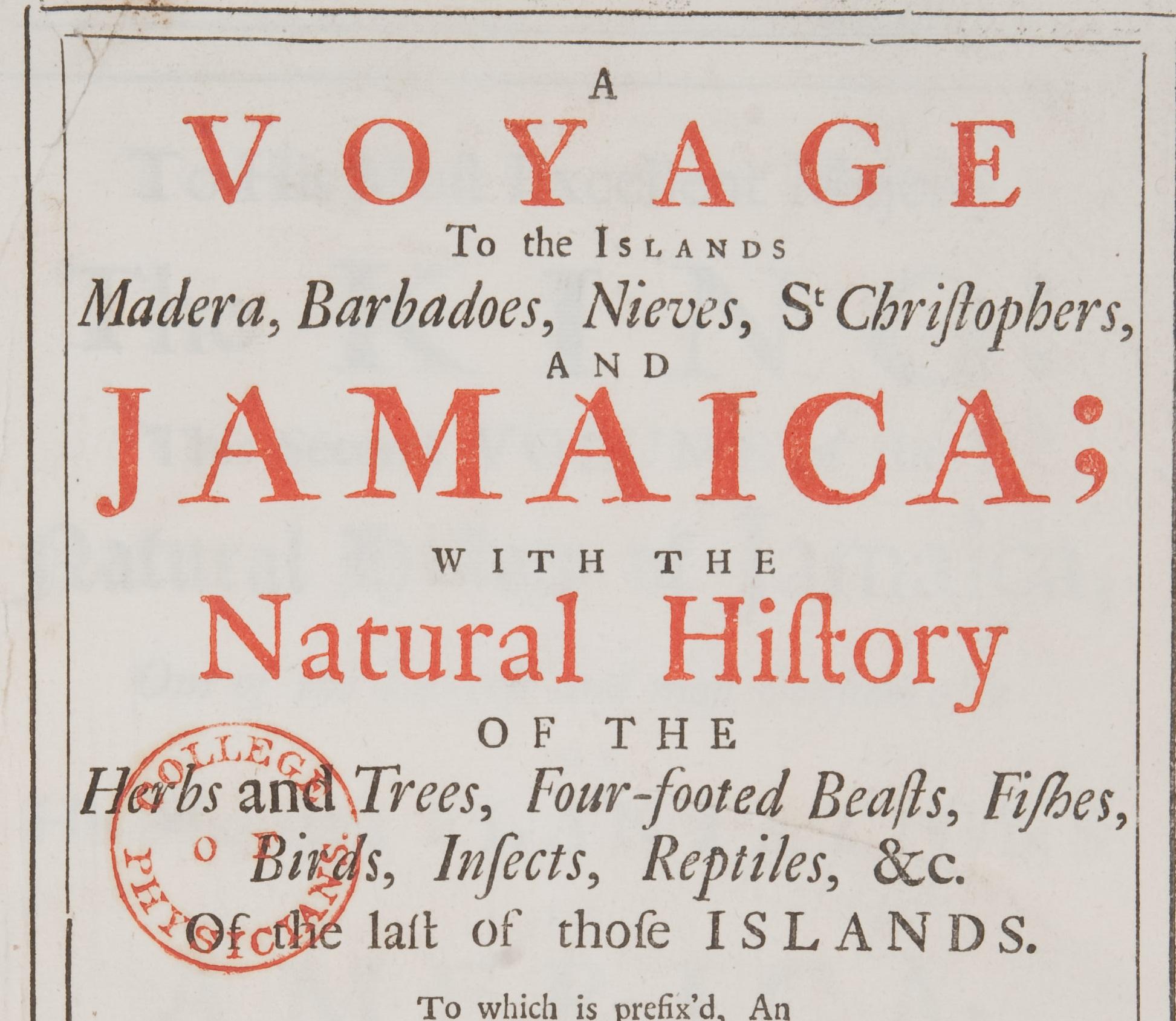Have you ever been lucky enough to sip coconut water straight from the coconut on an exotic holiday? If you have, you’ll know how utterly refreshing it can be. But did you know that 300 years ago the physician Sir Hans Sloane was in Jamaica drinking – and thinking – exactly the same thing?
Physician Sir Hans Sloane (1660–1753) is the only person to have been president of both the RCP and the Royal Society. Sloane was an avid collector and amassed a collection of over 71,000 objects, made up of natural history specimens, coins and medals, books, prints and manuscripts, dried plants, and other objects, which became one of the founding collections of the British Museum.
In 1687 – the same year that he became a fellow of the RCP – Hans Sloane sailed to Jamaica as physician to the new governor of the island, Christopher Monck, second duke of Albemarle (1653–1688). Sloane collected specimens of plants on the island and investigated their properties. The Jamaican plant specimens are now part of the Natural History Museum, and Sloane’s book A Voyage to Jamaica (1725) contains details and drawings of what he found.

One of Sloane’s Jamaican discoveries was cocoa, and he is well-known for supposedly having invented – or rather popularised the consumption of – milk chocolate on his return to England.
But he not only wrote about cocoa but also coco. He devoted two pages in A Voyage to Jamaica to the wonders and uses of what he called the ‘coco-tree’, which we know as the coconut palm or Cocos nucifera.
The Tree, or the Wood is good for Masts for Ships, Planks and Nails … The Leaves for covering Hats, Houses [and] The inward hard Shell … is made into Drinking-Cups.
Some of the uses were culinary.
The Pulp of the Nut grated and mix’d with Water, makes a Milk, to be used to make Cheesecakes and any other Way as ordinary Milk, and mix’d with some Salt, drank to eight Ounces, is good for Worms, and in the East Indies is mixed with their Rice for Food.
As a physician, Sloane was predominantly interested in the medical properties of the exotic plants and foods that he found in Jamaica, and this was no less true for the coconut. He writes that 'the Water contain’d in the Nuts not ripe, is very pleasant, cooling, and a natural Emulsion, good in Gonorhoeas, Stoppage of Urine Fevers, Inflammations'.
Today many people still consider the coconut to have medicinal properties, believing it to be a remedy for wounds and fungal infections, and even head lice. Coconut extracts are often also used in many cosmetic products for hair and skin, claiming soft and radiant effects.
We are still discussing the benefits of coconuts many years after Sir Hans Sloane. Despite disputes about its medicinal effects, anyone who’s drunk from a coconut on a hot sweaty day can agree with Sloane when he said that coconut water is ‘the most pleasant cooling liquor that I ever tasted'.
Sophy Thomas, museum volunteer
Read more about the RCP's library, archive, and museum on our blog, and follow @RCPmuseum on Twitter.
